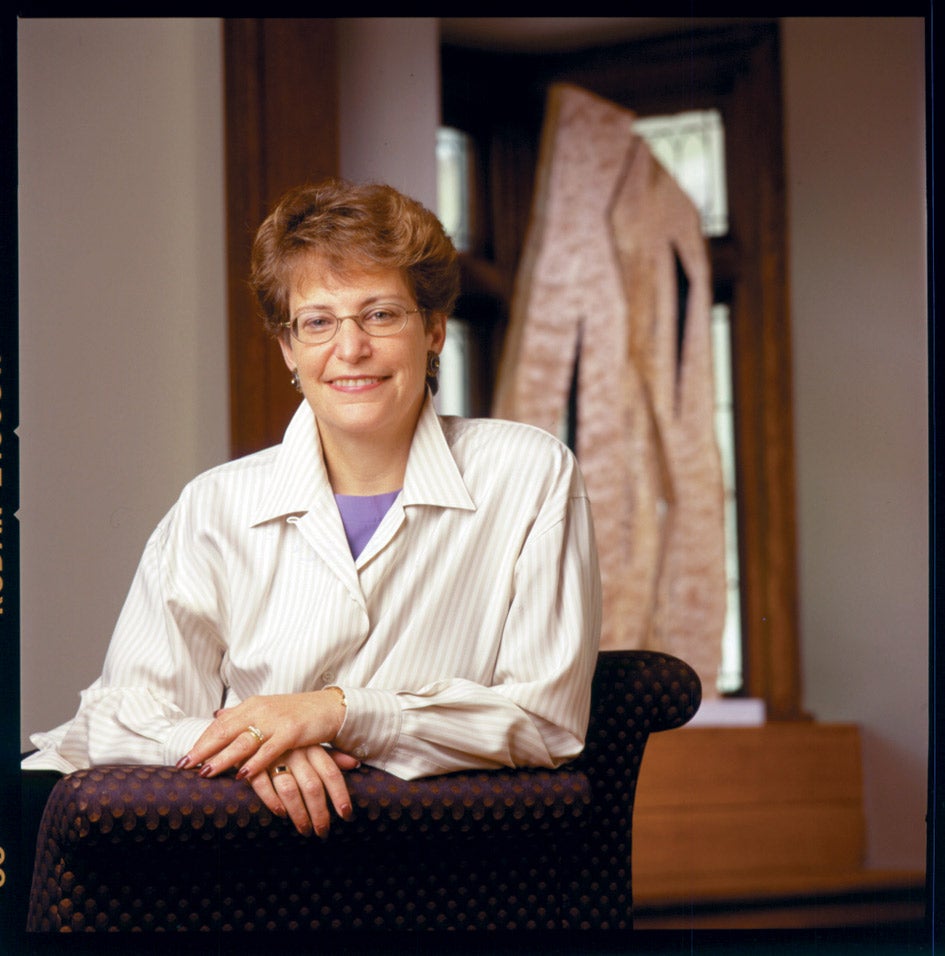Jamienne Studley ’75 has been trying to change academic institutions for a long time. Now, as head of Skidmore College, she’s finally getting paid to do it.
“I think it’s only fair that I’m a college president,” she said, “because I spent so much time as a student ‘sharing my suggestions,’ you might say, with the leadership of the schools I attended.”
At HLS, for example, Studley was president of the student government and quickly set her sights on recruiting more female students. “The women I met as a prospective student were candid about the school’s shortcomings,” she recalled. “I understood lawyers to be agents for change in society, and these women were very clear about what needed to be different.”
That commitment to creating opportunity is the common thread in a career that has taken Studley from associate dean and lecturer in law at Yale University to general counsel at the U.S. Department of Education (DOE) to president of Skidmore, a liberal arts institution of 2,200 students located in Saratoga Springs, N.Y. Now in her fourth year as president, she says the work involved in running a college is a complex, ever-changing puzzle. “There are so many interlocking systems involved,” she said, citing the intricate relationship between students, faculty, and staff and the demands of continually developing the campus and curricula.
In October 2000, Studley presided at the opening of Skidmore’s Tang Teaching Museum and Art Gallery. Current campus plans include constructing a music building that will host a wide range of cultural events (from chamber music to the Boys Choir of Harlem) and support the school’s programs in music theory and performance. Also on the agenda: increasing faculty and diversifying Skidmore’s student applicant pool by expanding financial aid programs.
Fund-raising must be done to accomplish those goals. It’s something Studley has thrived on: Since she became president, Skidmore has had three record fund-raising years and has increased its endowment by 25 percent. “To me, fund-raising is a form of advocacy that uses the skills of a lawyer,” she said. “Research, listening, putting forward a case . . . it’s a way to draw together my understanding of the college and engage people on an individual basis.”
Chairwoman-elect of the Annapolis Group (an organization of leading liberal arts colleges) and a board member of the Association of American Colleges and Universities, Studley preaches the value of a liberal arts education–for the mind and for a career. “A liberal arts background is preparation for the unexpected,” she said. “We have a philosophy graduate in the computer industry who says that when they need a person who knows a particular software system, someone else gets the assignment–but when they need to define the question and then imagine where the answers might lie, they call for him.”
At the DOE, Studley says she found satisfaction in the department’s influence on “vast numbers of students.” Though now a leader of a private liberal arts institution, she still is passionate about issues surrounding the U.S. public school system and its deficiencies. Education should not be treated as a political or legal football, says Studley, who advocates an approach that minimizes rhetoric, recognizes the role of families and communities in building strong schools, and provides equitable resources–including well-prepared teachers–to all students. “A strong public education system supports an effective democracy, economic growth, and individual opportunity,” she said. “Higher education can take students that much further if they have a solid foundation on which to build.”
